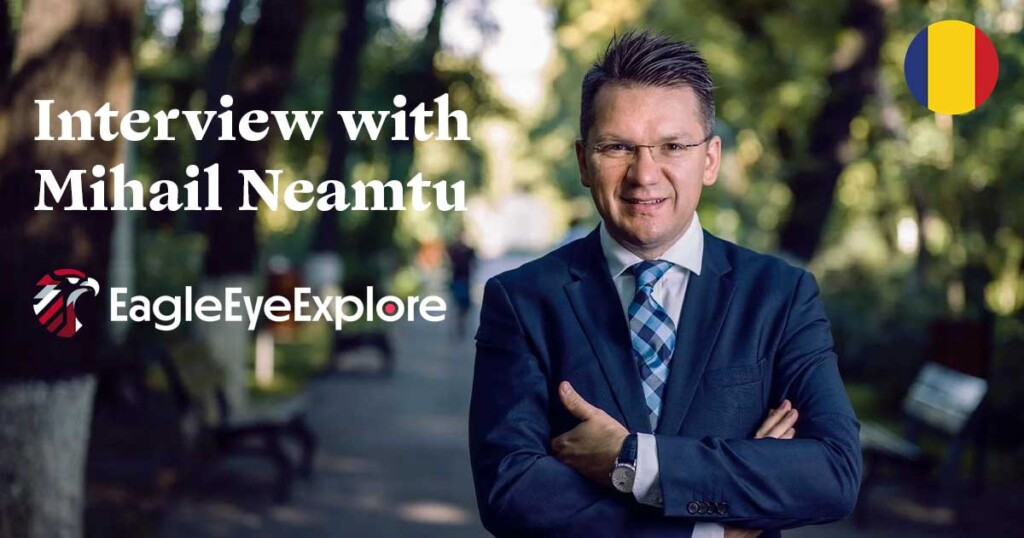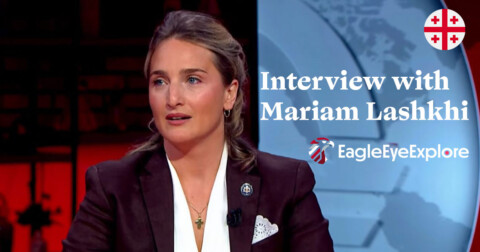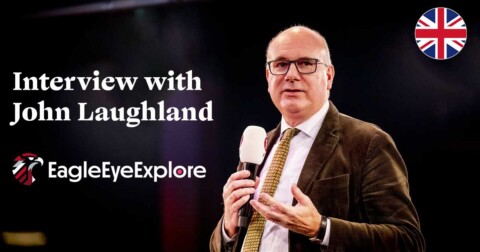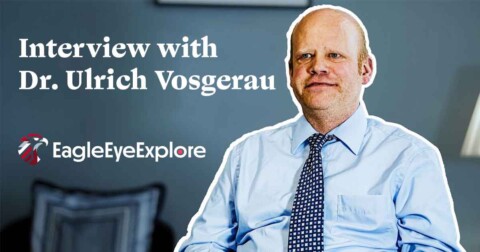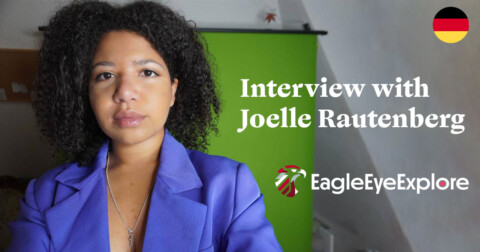Mihail Neamțu is a Romanian Member of Parliament, intellectual, and public figure, known for his strong advocacy of conservative values. Born in Romania, Neamțu has established himself as an influential voice in Romanian politics, particularly in the areas of national sovereignty, traditional values, and social issues. He is also a prominent writer and thinker, often engaging in debates on the role of culture and identity in shaping Romanian society. As an MP, Neamțu has represented conservative viewpoints and championed policies aimed at preserving Romania’s cultural heritage and promoting economic growth. His political career is marked by a commitment to shaping Romania’s future while respecting its historical and cultural roots.
In December, your party emerged as the second-largest political force in Romania’s parliamentary elections, having doubled its support. To what do you attribute this success—both in terms of external influences and the core tenets of your party’s platform?
Over the past four years, our party has experienced steady growth. Initially, in 2021 and 2022, people were drawn to our stance against government mandates, particularly those imposed during the COVID crisis. We positioned ourselves as a pro-freedom, pro-religion, pro-business nationalist party, which resonated with many. At one point, our support surged to around 32–35%, an incredible milestone.
However, internal divisions led to some fragmentation, with certain members branching off to form their own parties. As a result, Romania now has an alliance of nationalist parties, comprising three parliamentary groups—our party, SOS, and another faction—all stemming from the same ideological roots.
In 2024, two key moments defined our success. First, during the European elections, we were the only party openly critical of EU regulations, particularly regarding the Green Deal, which has severely impacted Romania. Major industries have been shuttered, the auto sector has suffered, and, much like in the Netherlands and Germany, our farmers took to the streets of Bucharest in protest. Economic hardship—rising food and energy prices—became a major concern, and we firmly opposed the government’s handling of these crises.
Second, our candidate, George Simion, aligned his message with that of Donald Trump, adopting a more measured tone in 2024. However, some voters gravitated toward a more radical alternative in Mr. Georgescu, whose strong rhetoric gained traction. By the end of 2024, we had successfully doubled our support, becoming the second-largest political force in Romania. Now, a significant portion of our base is rallying behind Mr. Georgescu, who remains a candidate in the upcoming presidential election.
Mr. Georgescu, if I’m not mistaken, was previously affiliated with AUR. Has he formed his own party, or does he remain unaffiliated?
No, he is strictly an independent and wishes to be recognized as such. Of course, he briefly considered joining a party—that’s not unusual. However, Romania is a country where people have grown deeply disillusioned with traditional political structures. Many are drawn to the idea of an outsider, a so-called “savior” figure. Much like Donald Trump, who wasn’t a career politician, Mr. Georgescu also stands apart from the political establishment.
He presents himself as a thinker, a wise man with a diverse background. His studies have spanned agriculture, sustainable development, and even environmentalism. Interestingly, in his early 30s and 40s, he was initially drawn to the Club of Rome, a globalist think tank. However, like many others, the COVID crisis was a turning point for him—what some might call a “red pill” moment.
His transformation mirrors figures like J.D. Vance, who once opposed Trump but later became an ally, or even Joe Rogan, who was initially critical of Trump but later shifted his stance. Once aligned with globalist ideals, Georgescu has since embraced traditionalist conservatism and Orthodox Christianity. His anti-establishment message resonates deeply with many Romanians, positioning him as a powerful voice in the country’s shifting political landscape.
Days ago, Romanian prosecutors opened a criminal investigation into Mr. Georgescu, alleging that he has supported fascist groups, incited actions against the constitutional order, and provided false statements regarding campaign financing and asset disclosures. It’s my impression that he has been placed under judicial control as a result. What is your perspective on this case?
First and foremost, we believe in the presumption of innocence. Honestly, there have been many cases where individuals were charged with fabricated accusations, only to be released once they were no longer seen as a political threat. Once they ceased to pose a challenge to the establishment, they were essentially forgotten.
Take, for example, François Fillon from France. About 10 to 12 years ago, he was a highly respected member of the French right. Yet, he was accused by prosecutors of receiving two free suits, worth $88,000. For this, he was sentenced to jail. Fillon was an opponent of Macron, and after Macron won the election, Fillon lost the political battle and quickly became irrelevant.
To be honest, I don’t trust the process. In today’s political climate, it’s too easy to fabricate a dossier, much like the fake Russia scandal we saw here. Do you remember that?
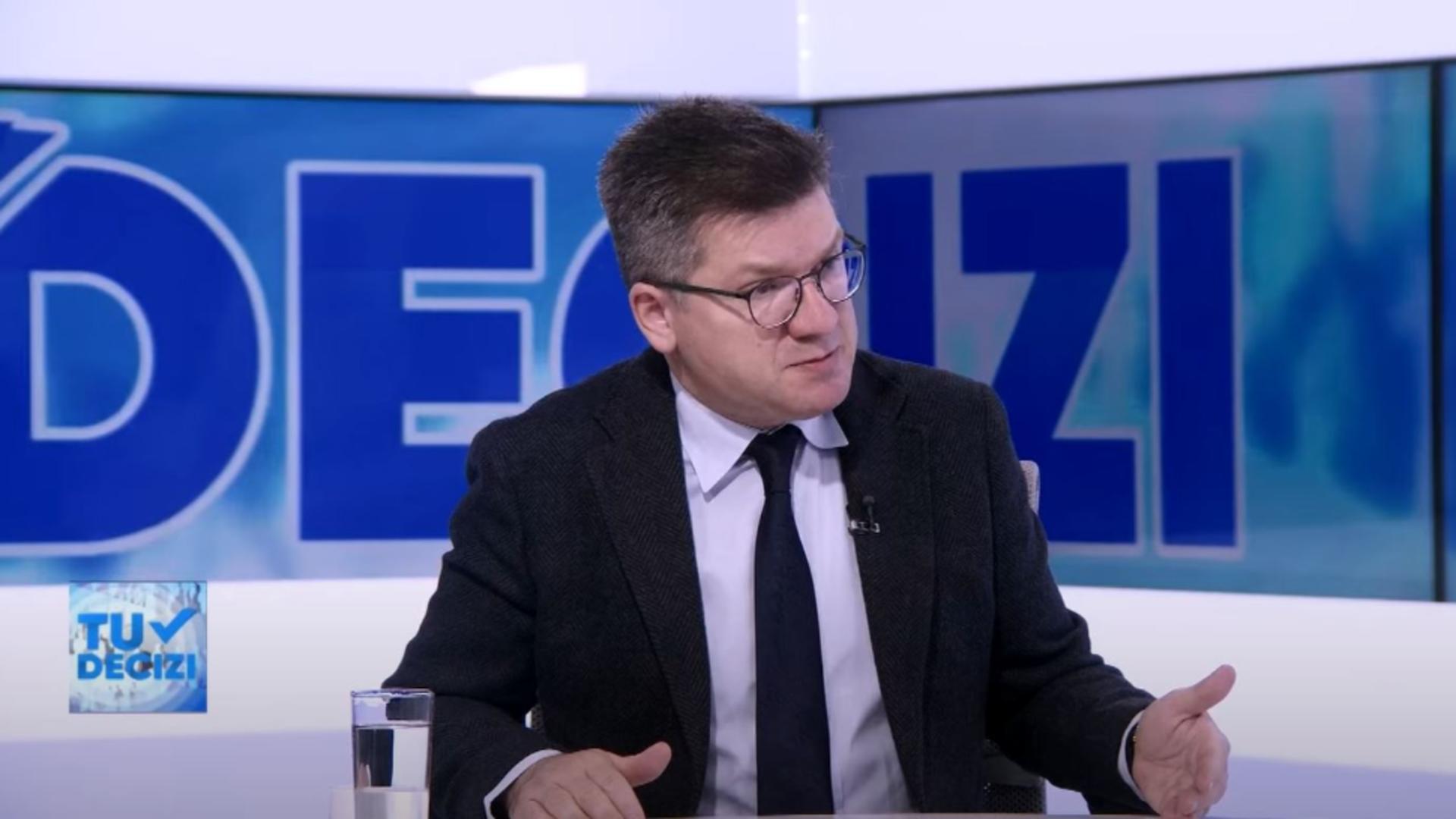
Of course, I was planning to ask you about that as well.
Anyway, Mr. Georgescu presents himself as a sage, offering a fresh perspective and a new discourse. His speech carries an almost poetic quality in Romanian—rich with organic metaphors about trees, roots, and the soul of Romania in agony, much like Christ on the cross. It’s a stark contrast to the hollow, bureaucratic rhetoric of someone like Guy Verhofstadt. This unique style has drawn people to him, and naturally, some donated to his campaign.
Now, what actually happened during the campaign? One thing is clear: he had massive traction on TikTok. Some people on his team clearly understood how to leverage the platform. I know people in business who made millions overnight just by mastering TikTok’s algorithm—like that viral “Chocolate Dubai” craze. A product that sat unnoticed for years suddenly exploded into a best-seller because someone cracked the marketing code. That’s what’s called a “Black Swan” event—something unexpected yet incredibly powerful.
And yet, the establishment’s response is laughable. Traditional politicians in Romania remind me of aging rock stars who refuse to accept that the crowd has moved on. They’re baffled that their old tricks don’t work anymore, while someone new comes along, taps into the moment, and wins over the people. Instead of adapting, they cry foul and blame external forces. But the truth is, Romanians are tired of the same old political class. Georgescu simply figured out how to reach them where they are—and that, more than anything, is why he’s being targeted.
I’d like to discuss the weaponization of intelligence and security services against the anti-globalist opposition. We saw it unfold in 2016–2017 with Trump and Russiagate, and more recently, ahead of the European Parliament elections. It seems that the same playbook is being used repeatedly by the international deep state, globalists, or whatever one chooses to call them. An intelligence agency makes a sensational claim designed to discredit anti-globalist opposition, yet no concrete evidence ever follows. This pattern is strikingly consistent. Could you speak to that?
Well, our party has been consistently critical of what we regard as Putin’s imperialist policies. As Romanians, we know our history, and while a direct threat to Romania may not be imminent, we are deeply concerned about Moldova. We see Moldovans as our brothers and sisters and do not want them under Russian influence. That said, we’re not paranoid. We recognize that the U.S. has interfered in elections, including in Romania and Moldova, without much scrutiny. The real question is: where is the evidence?
There are two key types of evidence to consider—financial transactions and cyber activity. So far, no proof has been presented. Where is the money? How much? Who received it? We know, for instance, how much Hunter Biden received from Burisma because of the infamous laptop. Eastern European corruption is well-documented, whether in Russia, Romania, or Ukraine, but no evidence has surfaced showing that Georgescu personally received money from Moscow. The only claim involves his bodyguard, Mr. Portra, who allegedly met with Wagner Group operatives in Africa. But bodyguards often have checkered pasts—look at Macron’s former bodyguard, who had multiple dealings with Russian oligarchs. If the standard is Russian connections, what about Gerhard Schröder, a former German chancellor deeply tied to Russian interests? Or the SPD, the party of Germany’s current chancellor, Olaf Scholz?
If politicians across Europe have taken Russian money, it’s clear Georgescu isn’t one of them. And if undeniable evidence emerged proving he was a Russian asset, I wouldn’t stand by him. I believe he is a strong candidate for Romania’s conservative base—not perfect, but viable. Has he made mistakes? Certainly. Have his associates? Probably. But is he implicated in any major scandal over the last 25–30 years? No. Did he contribute to Romania’s economic decline? No. Was he involved when our oil reserves were handed to Austrian companies for next to nothing? No. Did he facilitate the giveaway of Romania’s mineral resources to foreign interests? No.
Given this, why should we trust prosecutors now, when we’ve seen politically motivated cases before? We’ve witnessed fabricated dossiers in Romania, in Europe, and even in the U.S. And let’s not forget—the presumption of innocence stands. Until proven guilty, Georgescu remains innocent.
How do you see the situation with Georgescu unfolding? With the election rerun scheduled for early May, do you think he will remain a significant factor in the race? His polling numbers are exceedingly high at present. Are his opponents hoping this investigation will derail his candidacy?
The strategy that the Romanian deep state is employing mirrors what happened with François Fillon—they hope that demonizing Georgescu will weaken him. There are two types of political figures: some, like Trump, grow stronger when attacked, gaining even more support when they face impeachment, legal battles, or media suppression. His defiance fuels his appeal.
However, Georgescu’s psychological resilience is still unknown. How will he and his family handle the immense pressure? Being threatened with imprisonment simply for expressing patriotism is no small ordeal. His response in the coming months will be crucial.
Another key question is whether there is enough time to silence him or imprison him before the election. That seems unlikely. More pressing is whether the authorities will try to disqualify him from the presidential race.
If the Constitutional Court bars Georgescu from running, three major consequences follow. First, it sets a dangerous precedent and sparks a serious diplomatic scandal, something Romania cannot afford—especially with a potential Trump administration in Washington. Second, whoever wins in Georgescu’s absence will face serious legitimacy issues. It’s like banning Mike Tyson from a boxing match—it diminishes the entire competition. Disqualifying a strong independent candidate would be a blatant manipulation of the democratic process, and it simply won’t sit right with the public.
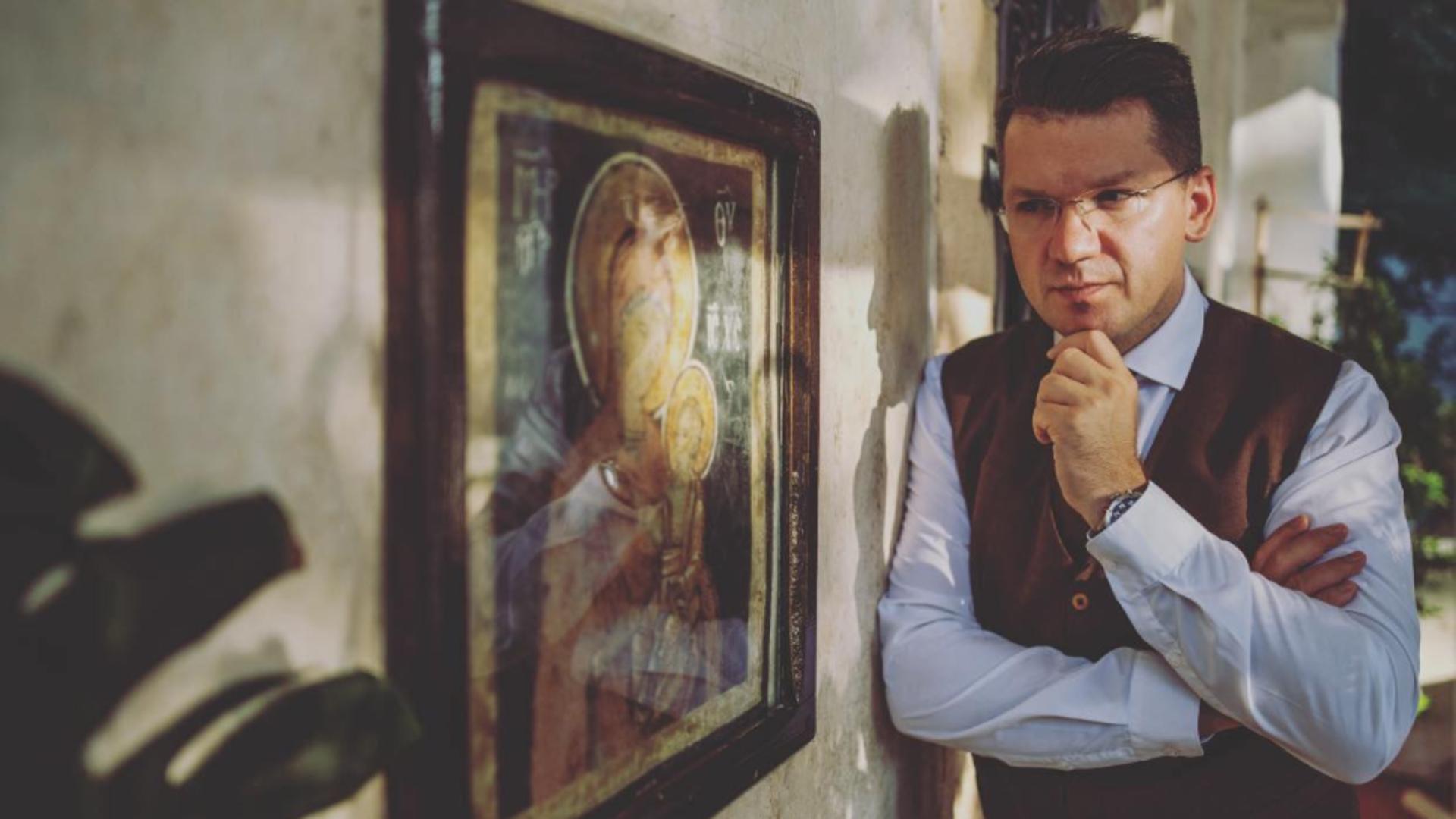
I want to ask about the fallout from the USAID scandal. Has it had any impact on Romania? I assume USAID was funding media outlets and various NGOs in the country. Do you have any insight into that?
Absolutely—multiple outlets, likely dozens, have received funding through USAID. Often, they disclose this in small print, buried in a report at the end of the year, stating they received support from certain sources. But in reality, readers rarely know the extent of this influence. Ideally, every article funded through USAID should come with an editorial note explicitly stating, This article was funded by American taxpayers for propaganda purposes.
Frankly, we’re shocked at how much money has been funneled into these initiatives. USAID increasingly looks like a money-laundering operation. Take Moldova, for example—a small country receiving $30 million in USAID funding. Why? What exactly do they do with that money? They hire so-called experts—often Democratic Party operatives—who fly in for two days, deliver the most banal policy advice imaginable, collect hefty speaking fees, and leave. Meanwhile, you could find far more insightful discussions on independent podcasts.
And here’s the most frustrating part: none of this funding is used to promote the inspiring story of the American people. USAID money doesn’t go toward teaching about the Founding Fathers, George Washington, Jefferson, or the principles of American democracy. Quite the opposite. These programs don’t promote Tocqueville, Reagan, Russell Kirk, or William F. Buckley. They don’t highlight America’s extraordinary entrepreneurial spirit. Instead, they push the same ideological agenda—LGBT rights, identity politics, and what can only be described as neo-Marxist dogma. It’s less U.S. aid and more anti-U.S. aid.
So, are the news outlets that received funding from USAID are still operating in Romania, or have they ceased to exist?
Let me explain. There’s a major media outlet in Romania, G4 media, because of its influence. They absolutely despise Trump. USAID even funded a film by a well-known, though not necessarily great, Romanian director. After Trump won, this director posted “F*** Trump” on Facebook. Can you imagine? The U.S. funds your work, and yet you spit on those who voted for Trump, the very people who helped you become a successful director. It’s crazy.
I’m glad that USAID is no longer being used to fund so many ideological agendas. The combination of U.S. funds and George Soros’ network was toxic. Soros provided the ideology and the network, and the U.S. provided the money. In general, to succeed, you need cash and a vision. In this case, it was a nightmare.
For over 25 years, Soros has been recruiting people, not just for a year, but over decades. He recruited propagandists and activists, much like the Soviet-era followers of Trotsky. They weren’t necessarily intellectuals; they were just activists. Soros built a network of these individuals throughout Romania and beyond, including in universities and even small libraries in remote towns. I’ve seen it firsthand.
Once the network was established, they began pushing activism that undermined national sovereignty and traditional Christian values. And, of course, the money followed, which eventually led to money laundering operations.
They got the money, but not just from Soros—mostly from public sources. USAID essentially continued and facilitated the work Soros started, turning it into an operation. You could call it a kind of “Soros and USAID in tandem,” like a tango. They operated much like a Leninist network, funded not by the Comintern this time, but by the U.S and Soros’ network. The USSR had its own Comintern funding for the international brigade of commissars, activists, and propagandists, which was the foundation for the global revolution. It’s an interesting parallel to what Soros and the U.S. created.
The Comintern was founded by Trotsky, under Stalin’s direction, to spread the Marxist-Leninist revolution beyond Russia. The idea was that the revolution shouldn’t stop at Russia’s borders—it was meant to unfold in places like Munich, Budapest, and beyond. In fact, the Romanians kicked out the communist government in Hungary, which was led by Béla Kun, Trotsky’s right-hand man.
Béla Kun, who established a communist government in Budapest in 1919, was from Transylvania. I’m very familiar with his background, as he was raised in Zalău, in the region I live. He was an activist, essentially part of a similar operation to Soros’ today.
However, Soros didn’t use Leninist tactics as much as he adopted Antonio Gramsci’s strategy of cultural hegemony—the “long march through the institutions.” This meant planting people in every major institution—churches, universities, schools, cultural centers—and now, in Romania, the influence is pervasive. If you look at the film industry or even the most mundane theater performances, you’ll see the globalist, woke mindset deeply embedded in the culture. It’s a troubling situation.
